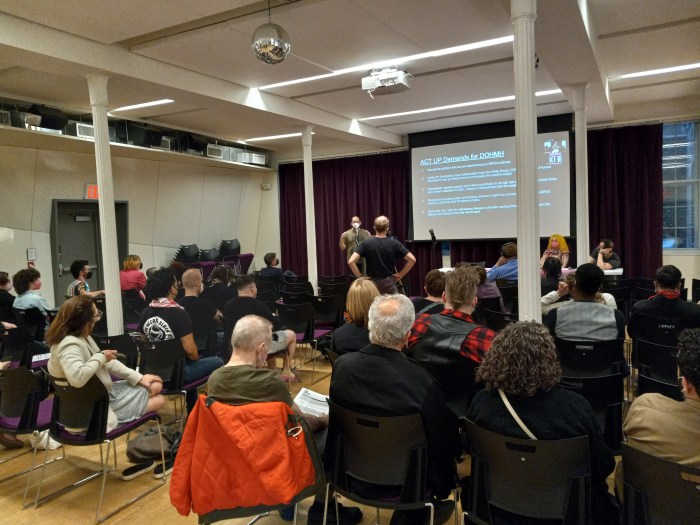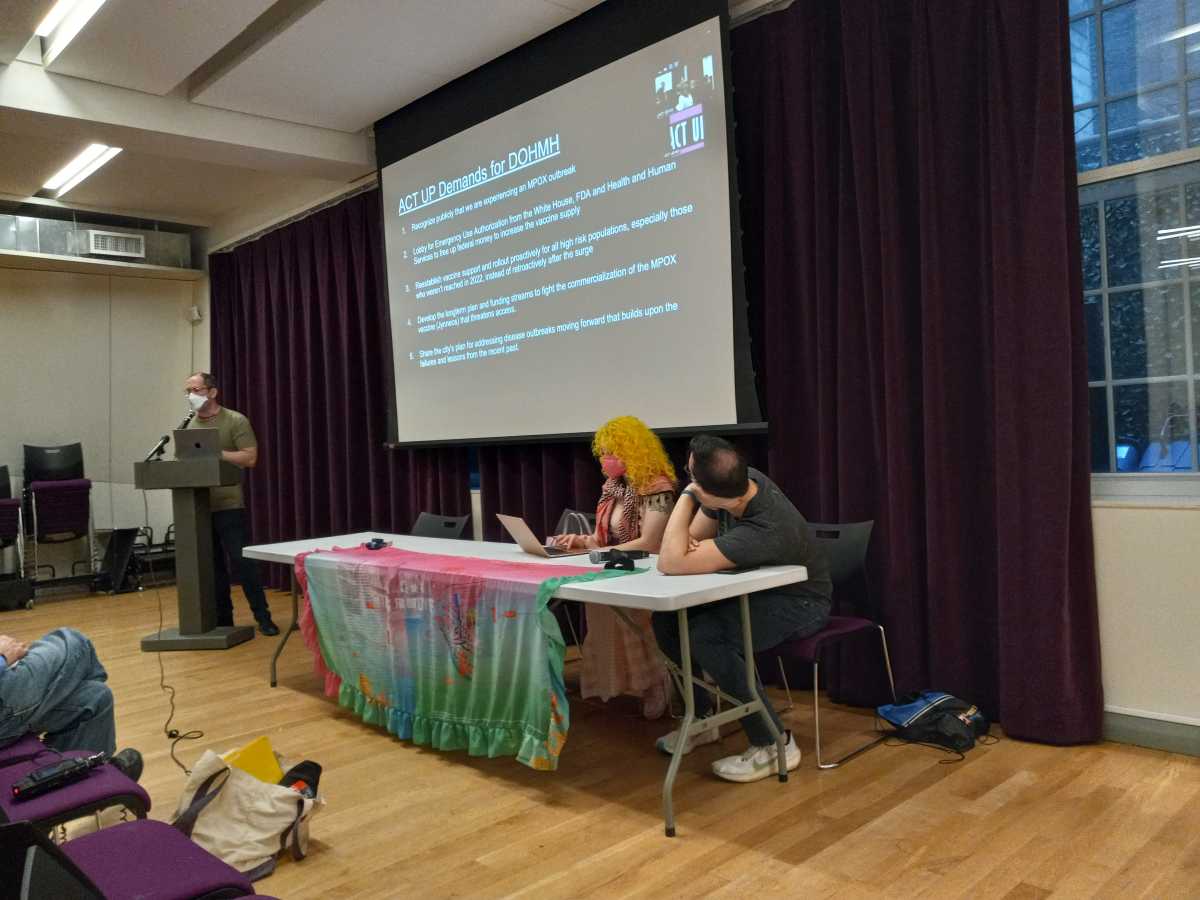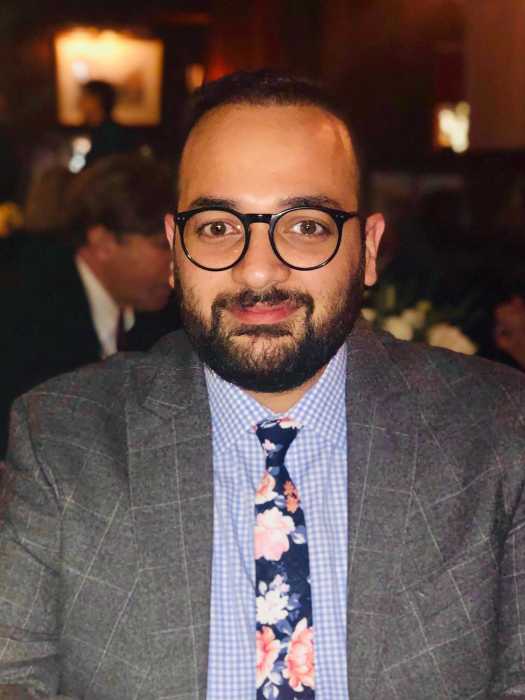ACT UP New York rallied the community at a town hall calling on the city to reverse $75 million in cuts to the city’s health department budget, including $5.3 million in cuts to HIV prevention and services programs and encouraged the city to increase spending on those programs.
“As a group, we oppose the cuts and we are actually demanding an expansion of that funding,” said Ivy Kwan, a member of the HIV activist group during the May 30 event that was held at the Lesbian, Gay, Bisexual, and Transgender Community Center.
Responding to sizable budget gaps that may come in the 2025 fiscal year, which begins on July 1, and in the three fiscal years after that, the Adams administration proposed cuts equal to $3.7 billion across city agencies in the 2025 fiscal year and possible cuts of roughly $2.2 billion in each of the next three fiscal years.
That has alarmed health and HIV groups that provide services to the LGBTQ community and other communities, such as Housing Works, the Callen-Lorde Community Health Center, GMHC, and Planned Parenthood.
“It’s really, really deplorable that the mayor would try to balance the budget on the backs of people with HIV and at risk for HIV,” said Seth Pollack, the director of community mobilization at Housing Works, who attended the meeting via Zoom.
The City Council, which is currently negotiating the 2025 budget with the Adams administration, has opposed the cuts, with that body’s LGBTQIA+ caucus being particularly vocal in its opposition.
“I’ve spoken with Speaker Adams about these cuts and she believes these cuts need to be reversed,” said Erik Bottcher, who represents Manhattan’s District 3, during the town hall. Adrienne Adams, who represents Queens’ District 28, is the speaker of the City Council.

The city’s Independent Budget Office forecasts a budget surplus of $5.1 billion in the current fiscal year and the Adams administration says that surplus will be $3.9 billion. But the budget office is forecasting far higher gaps in each of the next three fiscal years. The current fiscal year’s budget is expected to be $116.8 billion and the 2025 budget is expected to be $113.6 billion.
ACT UP New York is also asking that the city’s Department of Health and Mental Hygiene restore the COVID-19 services that it was providing at its eight sexual health clinics, that it continue to distribute mpox vaccinations at those clinics, and continue to enroll bars serving the LGBTQ community in its condom distribution program.
New HIV diagnoses remain stubbornly high among Black and Latino gay and bisexual men. While COVID-19 cases, hospitalizations, and deaths have declined substantially from their highest levels in 2020, 2021, and 2022, the city does continue to see COVID-19 cases. Mpox cases are rising. The city has tallied at least 191 mpox cases diagnosed in the city this year, according to the latest update from May 9.
Brandon Cuicchi, an ACT UP New York member, said that the city’s strategy for confronting mpox when it first appeared was to “wait for the surge” in cases and then respond.
“What is the strategy for 2024?” Cuicchi said. “Is it 2022 all over again? I hope not.”
Dr. Celia Quinn, the deputy commissioner of the health department’s Division of Disease Control, and Joaquin Aracena, the assistant commissioner of the Bureau of Public Health Clinics, attended the town hall.
Quinn told the crowd, which was comprised of more than 70 people attending in person and Zoom attendees, that the COVID-19 services were funded entirely with federal dollars and when that funding ended, the services ended.
“It was all done with federal funding…so we no longer have that funding,” Quinn said. Aracena said that the city clinics will “continue to add on and expand where we can.” For example, those clinics have increased their distribution of the medications used for non-surgical abortion.
Continuing funding for mpox vaccination is a problem because Bavarian Nordic, the company that manufactures and distributes that vaccine, announced the vaccine’s commercial launch in the US this past April. Previously, health departments across the country were able to get the vaccine, which is also a vaccine for smallpox, for free from a federal stockpile.
“Those federal supplies will no longer be available after August,” Dunn said. “We can order more before August.”
Having a cost now attached to the mpox vaccine, which is administered in two doses 30 days apart, could be a disincentive to those at risk of acquiring the virus. The city struggled to administer first doses in 2022 and also to get those who received the first shot to get the second shot.
At the close of the meeting, the ACT UP New York members made it clear that they will continue to press for more funding and to reverse the cuts.
“We’re going to fight tooth and nail so we don’t lose our funding,” Cuicchi said.




































